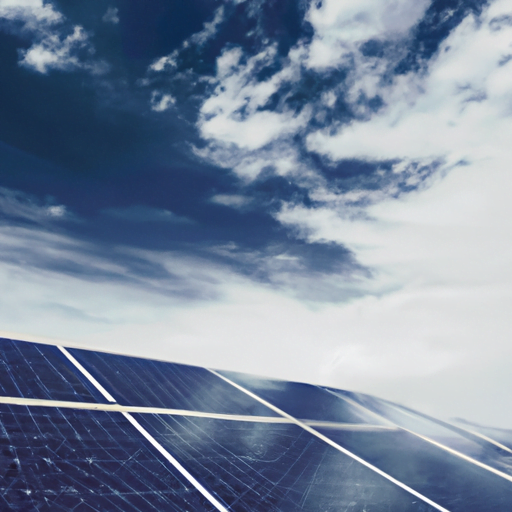So, have you ever wondered what it would be like to live off the grid? You know, completely independent from the traditional electrical power grid. It’s definitely an intriguing concept, and one that more and more people are considering these days. And here’s the thing – it’s actually quite possible, thanks to the wonders of solar panels. Yes, those sleek and shiny panels that harness the power of the sun. But here’s the question: can solar panels work with just artificial light? Well, my friend, that’s exactly what we’re going to discuss in this article.
Living off the grid with solar panels is all about embracing a more sustainable and environmentally-friendly lifestyle. By harnessing the sun’s energy, solar panels allow you to generate your own power without relying on fossil fuels. They convert sunlight into electricity, which can be used to power all your appliances and devices. From heating your home and powering your lights to running your refrigerator and charging your devices, solar panels have the potential to provide all the electricity you need. It’s pretty amazing, isn’t it?
Now, when it comes to artificial light, you might be wondering if solar panels can still work effectively. After all, not every day is going to be filled with bright sunshine. Well, here’s the good news – solar panels can still generate power even with just artificial light. They are designed to absorb a wide range of wavelengths, including both natural and artificial light. This means that even on cloudy days or during the night, when sunlight is not readily available, solar panels can still generate electricity. Of course, the amount of power produced may be lower compared to a sunny day, but it’s still a viable option for living off the grid.
So, if you’re considering going off the grid and relying on solar panels for your energy needs, rest assured that they can handle any type of light, whether it’s natural or artificial. With the right setup and equipment, you can live a sustainable and self-sufficient lifestyle while reducing your carbon footprint. In our upcoming article, we’ll delve even deeper into the world of off-grid living and explore the benefits of solar panels in more detail. Keep an eye out for it and get ready to embark on an exciting journey towards energy independence! Living off grid with solar panels has become increasingly popular in recent years, as more people seek to reduce their reliance on traditional electricity sources and embrace a more sustainable lifestyle. By harnessing the power of the sun, off-grid living with solar panels offers numerous benefits, including reduced electricity bills, environmental sustainability, and energy independence. In this article, we will explore how solar panels work, the considerations for choosing the right panels for off-grid living, designing an off-grid solar system, the use of artificial light, maximizing efficiency and reducing energy consumption, maintenance and troubleshooting, and backup power generation options. So, let’s dive in!
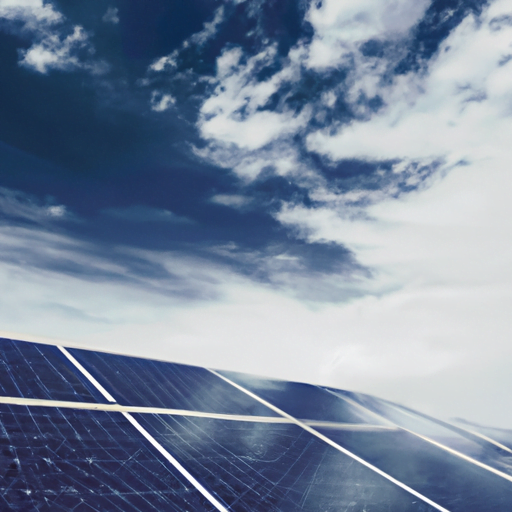
Benefits of Living off Grid with Solar Panels
Reduced Electricity Bills
One of the most significant benefits of living off grid with solar panels is the reduced electricity bills. By generating your electricity from solar energy, you can significantly reduce or even eliminate your monthly electricity bills. With solar panels, you can harness the power of the sun for free, making it a cost-effective solution in the long run. Additionally, once the initial investment is made, the ongoing cost of operating and maintaining solar panels is relatively low.
Environmental Sustainability
Living off grid with solar panels also promotes environmental sustainability. Solar energy is a clean and renewable energy source that produces zero carbon emissions, making it an eco-friendly alternative to fossil fuels. By choosing to live off grid with solar panels, you are reducing your carbon footprint and contributing to a cleaner and greener planet. Moreover, solar panels require minimal water for operation, further conserving this precious resource.
Energy Independence
Another significant advantage of living off grid with solar panels is the energy independence it offers. When you generate your electricity, you are not dependent on the grid for your power supply. This means that even during power outages or interruptions, you will still have access to electricity. This energy independence provides peace of mind and ensures that your essential appliances and systems can continue to run seamlessly.
How Solar Panels Work
To understand how solar panels work, it is essential to grasp the functionality of the photovoltaic cells, the conversion of sunlight to electricity, the inverter function, and the battery storage system.
Photovoltaic Cell Functionality
Solar panels are made up of photovoltaic (PV) cells, which are responsible for converting sunlight into electricity. These cells are typically made of silicon, a semiconductor material that can absorb photons (particles of light) and release electrons. When light strikes the solar panel, the PV cells absorb the photons, and this energy excites the electrons, causing them to move and create a flow of electrical current.
Conversion of Sunlight to Electricity
Once the sunlight is absorbed by the PV cells, the conversion process begins. The excited electrons flow through the PV cells and generate a direct current (DC) of electricity. However, most of our appliances and electrical systems use alternating current (AC) electricity. Therefore, an inverter is required to convert the DC electricity into AC electricity, making it compatible with our standard electrical devices.
Inverter Function
The inverter plays a crucial role in an off-grid solar system. It converts the DC electricity generated by the solar panels into AC electricity that can be used to power your home. Additionally, the inverter is responsible for optimizing the electricity output, ensuring maximum efficiency and safety.
Battery Storage
In an off-grid solar system, a battery storage system is essential for storing excess electricity generated during the day. The stored energy can then be used during the night or when sunlight is insufficient. The battery storage system acts as a backup power source, providing a continuous supply of electricity even when the sun is not shining.
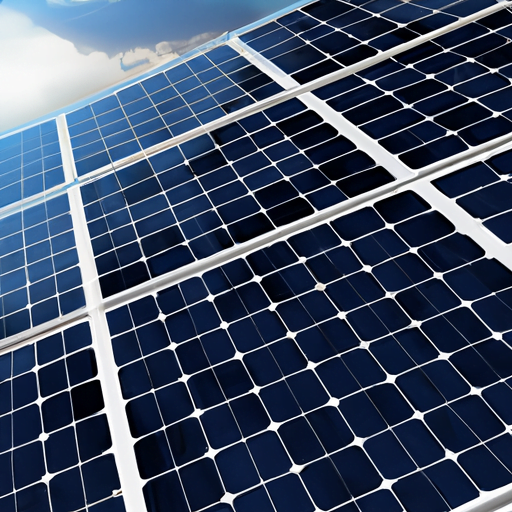
Choosing the Right Solar Panels for Off-Grid Living
When it comes to choosing the right solar panels for off-grid living, several factors need to be considered. These include efficiency and power output, durability and warranty, installation, and maintenance.
Efficiency and Power Output
The efficiency of a solar panel refers to how effectively it can convert sunlight into electricity. Higher efficiency panels will generate more power for the same amount of sunlight. Therefore, it is crucial to choose solar panels with high efficiency and power output to maximize energy production.
Durability and Warranty
Solar panels are a long-term investment, so it is essential to choose panels that are durable and backed by a solid warranty. Look for panels with a reputation for high-quality construction and longevity. Additionally, a warranty will provide you with peace of mind, as it ensures that any faulty panels can be repaired or replaced without incurring additional costs.
Installation and Maintenance
Consider the ease of installation and maintenance when choosing solar panels for off-grid living. Look for panels that are designed for easy installation and compatibility with various mounting systems. Additionally, consider the maintenance requirements of the panels, such as cleaning and inspections, to ensure they remain in optimal working condition.
Designing an Off-Grid Solar System
Designing an off-grid solar system involves assessing your energy needs, sizing the solar array, determining battery capacity, and selecting the right inverter.
Assessing Energy Needs
Start by assessing your energy needs to determine how much electricity you will require on a daily basis. Consider the appliances and systems you will be powering, their energy consumption, and any additional factors such as seasonal variations and fluctuations in energy demand.
Sizing the Solar Array
Based on your energy needs, you can determine the size of the solar array required to meet your electricity demand. Factors such as location, available sunlight, and the efficiency of the solar panels will play a role in determining the size of the solar array.
Determining Battery Capacity
To ensure a continuous supply of electricity, you need to determine the battery capacity required for storing excess energy generated during the day. Consider factors such as nighttime usage, energy demand during cloudy periods, and any backup power requirements.
Inverter Selection
Selecting the right inverter is crucial for an off-grid solar system. Ensure that the inverter is compatible with your energy needs, capable of handling the power output of your solar array, and has the necessary safety features to protect your electrical appliances and systems.
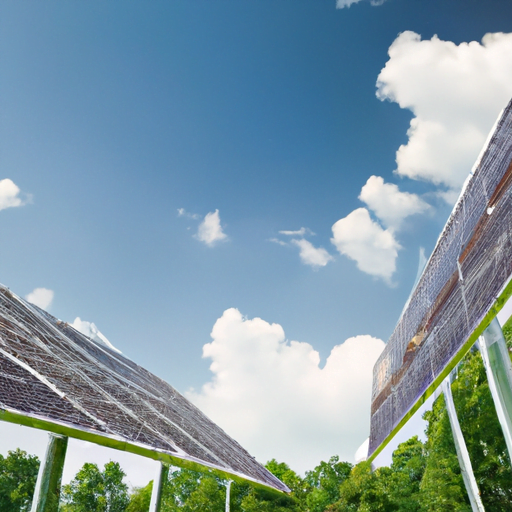
Considering Artificial Light for Solar Panels
One common question that arises when living off grid with solar panels is whether solar panels can work with artificial light. While solar panels are primarily designed to harness the power of sunlight, they can still generate electricity under certain types of artificial light.
Types of Artificial Light
There are various types of artificial light sources, including incandescent bulbs, fluorescent bulbs, and light-emitting diodes (LEDs). Each type of light source emits different wavelengths of light, and the efficiency of solar panels in converting this light into electricity may vary.
Efficiency of Solar Panels with Artificial Light
While solar panels are most efficient when exposed to direct sunlight, they can still produce electricity under artificial light. However, the efficiency of electricity generation may be lower compared to natural sunlight. Factors such as the intensity and spectrum of the artificial light source will affect the performance of the solar panels.
Supplementing Sunlight with Artificial Light
In situations where sunlight may be limited or not available for extended periods, such as during winter or in regions with prolonged cloudy weather, supplementing sunlight with artificial light can help maintain a continuous flow of electricity. By strategically placing artificial light sources near the solar panels, you can provide additional stimulation for electricity generation.
Benefits and Challenges of Using Artificial Light
Using artificial light to supplement solar panels offers several benefits, including extended hours of electricity generation and reduced dependency on sunlight. However, there are also some challenges to consider, including additional energy costs.
Extended Hours of Electricity Generation
By using artificial light to supplement solar panels, you can extend the hours of electricity generation beyond daylight hours. This is particularly advantageous in regions with shorter daylight periods or during seasons when sunlight is limited.
Reduced Dependency on Sunlight
Artificial light allows solar panels to generate electricity even when sunlight is not available or is insufficient. This reduces the dependency on sunlight and ensures a more reliable electricity supply, even during adverse weather conditions.
Additional Energy Costs
Using artificial light comes with additional energy costs. While the amount of electricity consumed by artificial light sources is relatively small compared to the energy generated by solar panels, it is still an additional expense to consider.
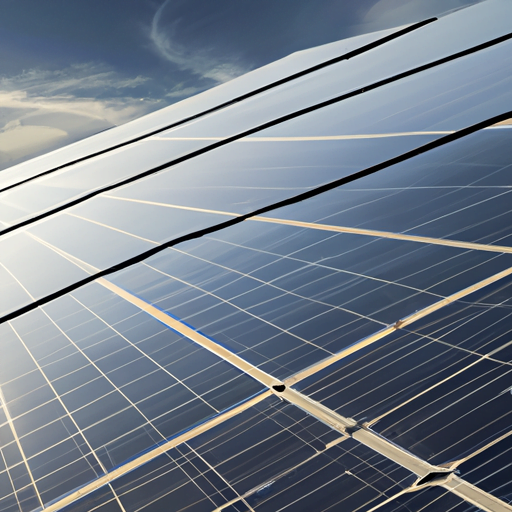
Maximizing Efficiency and Reducing Energy Consumption
To make the most out of your off-grid solar system and minimize energy consumption, there are several strategies you can implement.
Energy-Efficient Appliances and Lighting
To reduce energy consumption, opt for energy-efficient appliances and lighting solutions. Look for ENERGY STAR certified appliances and LED lighting, which consume less electricity without compromising performance. Additionally, consider the installation of motion sensors or timers to automatically turn off lights when not in use.
Proper Insulation and Ventilation
Ensure that your home is properly insulated and ventilated to reduce the need for excessive heating or cooling. Good insulation helps retain heat during colder months and keeps your home cooler during hot summers, reducing the energy required for temperature regulation.
Smart Energy Management Systems
Implementing smart energy management systems can help optimize energy usage. These systems allow you to monitor and control the energy consumption of your appliances and systems remotely, ensuring efficient use of electricity.
Maintenance and Troubleshooting
Regular maintenance and troubleshooting are essential to keep your off-grid solar system in optimal working condition.
Regular Cleaning and Inspections
Periodically clean your solar panels to remove any dirt, dust, or debris that could obstruct sunlight and reduce efficiency. Additionally, conduct regular inspections to identify any issues or damage that may affect the performance of your solar panels.
Checking Battery Performance
Regularly check the performance of your battery storage system. Monitor the charging and discharging rates to ensure the battery is functioning correctly and has the necessary capacity for storing excess energy.
Identifying and Repairing Faulty Components
In the event of any faults or issues with your off-grid solar system, it is crucial to identify and repair them promptly. This may involve replacing faulty components, repairing wiring or connections, or seeking professional assistance when necessary.
Backup Power Generation Options
While solar panels provide a reliable source of electricity, having backup power generation options can provide additional security and peace of mind.
Backup Generators
Backup generators can be used as an alternative power source during extended periods of limited sunlight or when the battery storage is insufficient. However, it is essential to choose a generator that is compatible with your energy needs and fuel it with a sustainable and environmentally friendly fuel source.
Wind Turbines
Wind turbines can be a valuable addition to an off-grid solar system, especially in regions with consistent wind patterns. Wind turbines can generate electricity when sunlight is limited, enhancing the reliability and stability of your off-grid energy supply.
Hydroelectric Systems
For off-grid properties with access to flowing water, hydroelectric systems can provide a constant source of electricity. By harnessing the power of flowing water, hydroelectric systems can generate reliable electricity even when sunlight and wind energy are unavailable.
Conclusion
Living off grid with solar panels offers a range of benefits, from reduced electricity bills to environmental sustainability and energy independence. By understanding how solar panels work, choosing the right panels for off-grid living, designing a suitable solar system, considering artificial light, maximizing efficiency, and implementing proper maintenance, you can enjoy an independent and sustainable lifestyle. Embrace the power of solar energy and ensure a reliable electricity supply for your off-grid living. Continuous innovation and advancements in solar technology will only enhance the possibilities for off-grid living in the future. So, go ahead and embrace the sun, step into the world of off-grid living with solar panels!

